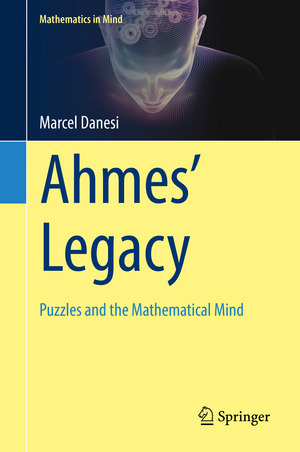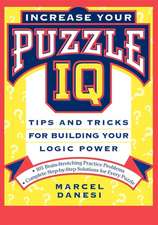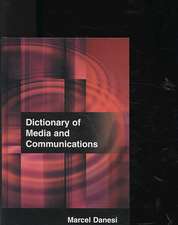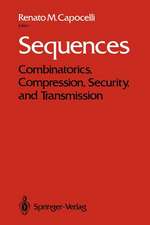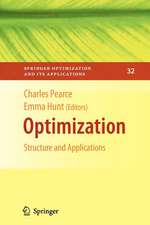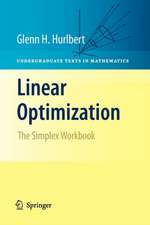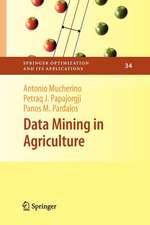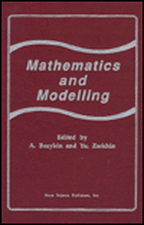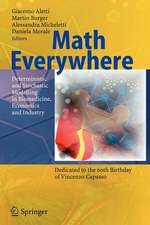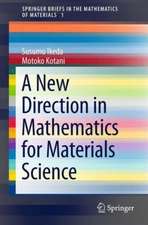Ahmes’ Legacy: Puzzles and the Mathematical Mind: Mathematics in Mind
Autor Marcel Danesien Limba Engleză Hardback – 21 aug 2018
This volume is the first monographic treatment of the psychological nature of puzzles in mathematics. With its user-friendly technical level of discussion, it is of interest to both general readers and those who engage in the disciplines of mathematics, psychology, neuroscience, and/or anthropology. It is also ideal as a textbook source for courses in recreational mathematics, or as reference material in introductory college math courses.
| Toate formatele și edițiile | Preț | Express |
|---|---|---|
| Paperback (1) | 496.64 lei 38-44 zile | |
| Springer International Publishing – 13 dec 2018 | 496.64 lei 38-44 zile | |
| Hardback (1) | 640.88 lei 6-8 săpt. | |
| Springer International Publishing – 21 aug 2018 | 640.88 lei 6-8 săpt. |
Preț: 640.88 lei
Preț vechi: 753.97 lei
-15% Nou
Puncte Express: 961
Preț estimativ în valută:
122.63€ • 128.38$ • 101.47£
122.63€ • 128.38$ • 101.47£
Carte tipărită la comandă
Livrare economică 05-19 aprilie
Preluare comenzi: 021 569.72.76
Specificații
ISBN-13: 9783319932538
ISBN-10: 3319932535
Pagini: 202
Ilustrații: XIII, 164 p. 99 illus.
Dimensiuni: 155 x 235 mm
Greutate: 0.43 kg
Ediția:1st ed. 2018
Editura: Springer International Publishing
Colecția Springer
Seria Mathematics in Mind
Locul publicării:Cham, Switzerland
ISBN-10: 3319932535
Pagini: 202
Ilustrații: XIII, 164 p. 99 illus.
Dimensiuni: 155 x 235 mm
Greutate: 0.43 kg
Ediția:1st ed. 2018
Editura: Springer International Publishing
Colecția Springer
Seria Mathematics in Mind
Locul publicării:Cham, Switzerland
Cuprins
1. Puzzles and Mathematics.- 2. An Archetype Theory of Puzzles.- 3. Puzzles and Discovery.- 4. Puzzles and Spatial Reasoning.- 5. The Mathematical Mind.- References.- Index.
Recenzii
“This book, however, focuses almost exclusively on puzzles within recreational mathematics, and surveys a wide variety of them. The book’s title comes from the Ahmes Papyrus (also called the Rhind Papyrus), that contains some of the oldest known puzzles. One of the peculiarities of the problem-puzzle distinction is that is it time-dependent, because we develop new standard methods from working on particular puzzles.” (Allen Stenger, MAA Reviews, January, 25, 2019)
Textul de pe ultima copertă
This book looks at classic puzzles from the perspective of their structures and what they tell us about the brain. It uses the work on the neuroscience of mathematics from Dehaene, Butterworth, Lakoff, Núñez, and many others as a lens to understand the ways in which puzzles reflect imaginative processes blended with rational ones. The book is not about recreational or puzzle-based mathematics in and of itself but rather about what the classic puzzles tell us about the mathematical imagination and its impact on the discipline. It delves into the history of classic math puzzles, deconstructing their raison d’être and describing their psychological features, so that their nature can be fleshed out in order to help understand the mathematical mind.
This volume is the first monographic treatment of the psychological nature of puzzles in mathematics. With its user-friendly technical level of discussion, it is of interest to both general readers and those who engage in the disciplines of mathematics, psychology, neuroscience, and/or anthropology. It is also ideal as a textbook source for courses in recreational mathematics, or as reference material in introductory college math courses.
Caracteristici
Provides a rare look at the psychology and neuroscientific aspects of recreational mathematics and what it entails for understanding the mathematical mind Presents an overall picture of what pizzles mean for the origins and developments of mathematics Maintains a user-friendly level, while including more technical discussion of solutions in appendices for interested readers
